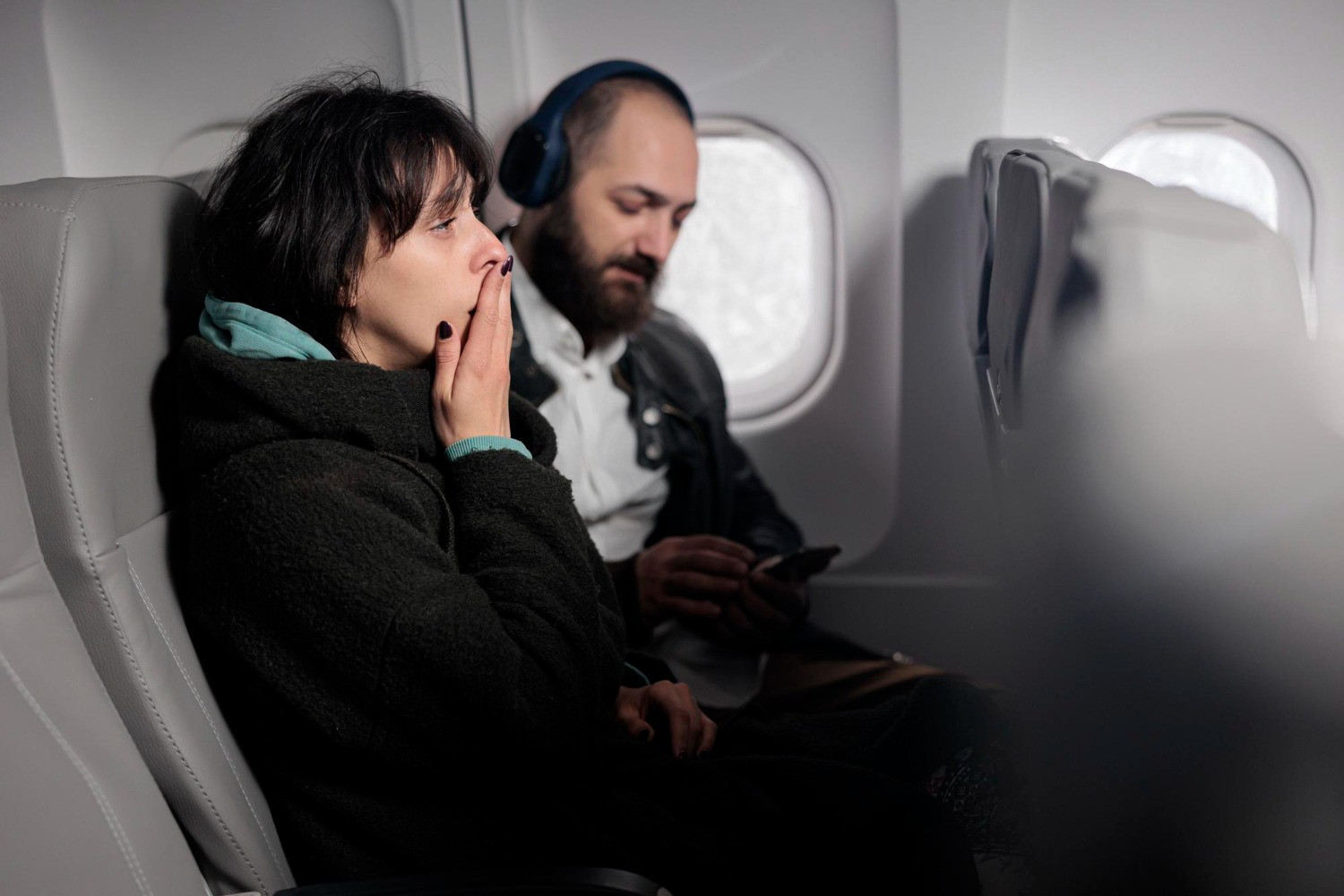Assess your health before you fly
Certain infections, pathologies or recent operations are contraindications to altitude travel. Before considering a domestic or long-haul flight, please consult your doctor to check your general condition.
Not to mention the fact that a simple cold or an untreated tooth can complicate your flight just as much. In the case of a cold, for example, the eustachian tubes become inflamed, preventing air circulation. The eardrums are then subjected to excess pressure, which can cause a sudden pain in the ear. This is barotraumatic otitis. To avoid it, consult your doctor before departure to obtain a decongestant.
Finally, those who wear hearing aids need to be vigilant. In fact, it's best to unplug them during take-off and landing, to avoid the inconvenience of pressure variations.
If you wish to take medication to avoid getting sick on the plane, always seek the advice of a health professional who will be able to take your medical history into account.
How to prevent motion sickness when flying?
Airsickness is similar to motion sickness. You may experience nausea and vomiting, headaches, sweating and dizziness. All these symptoms are linked to the fact that the inner ear is destabilized by the aircraft's various movements, including acceleration, turbulence, landing...
To reduce the effect of these symptoms, you can choose a seat close to the wings. This is where you'll feel the least disturbance during the flight. If this seat is close to the window, it's even better. Looking far out and staring at the horizon can help stabilize the signals between your senses and your inner ear.
Recline your seat as much as you can and keep as still as possible. Avoid reading or writing; instead, use headphones to relax to soft music or concentrate on the story in an audio book. Slow, deep breathing techniques can also help.
Good to know: to avoid suffering from air travel sickness as much as possible, it's best not to eat heavy meals before the flight, and to stay well hydrated by drinking water rather than carbonated beverages, which amplify intestinal bloating.
Last but not least, avoid drinking alcohol when dealing with your fear of flying. In fact, alcoholic beverages can contribute to the development of thrombophlebitis.
How can you protect your ears from pressure fluctuations?
When you travel by plane, you may also experience altitude sickness, similar to acute mountain sickness.
As the journey draws to a close, getting off the plane in preparation for landing can cause ringing or whistling in the ears, leading to severe pain and hearing loss. This is due to the increase in cabin pressure, which exceeds the volume of air in the middle ear.
To protect your eardrums from this discomfort, a few simple gestures can help. All you have to do is yawn, swallow your saliva, drink or chew gum. If the symptoms don't go away, the Valsalva technique can also unblock your ears. In this case, you need to inhale deeply, then exhale gently while pinching your nose.
For toddlers still struggling with these reflexes, it's best to give them something to drink to encourage swallowing (breastfeeding or bottle-feeding), or to leave a pacifier at their disposal.
Other ailments that can spoil your trip
On board the aircraft, the air can be very dry and air-conditioned, which can dry out the mucous membranes of the nose, mouth and eyes. To avoid dehydration, make sure you drink enough water and adjust the air vents if necessary.
On the other hand, you may feel cold on a night flight. If you haven't packed warm clothes, don't hesitate to ask the flight crew for a blanket.
Finally, standing still for several hours can lead to numbness in the limbs, which in some cases can even lead to venous thrombosis. That's why we recommend getting up at least every two hours to stretch and stretch your legs. Those at risk should also wear compression stockings when flying.

